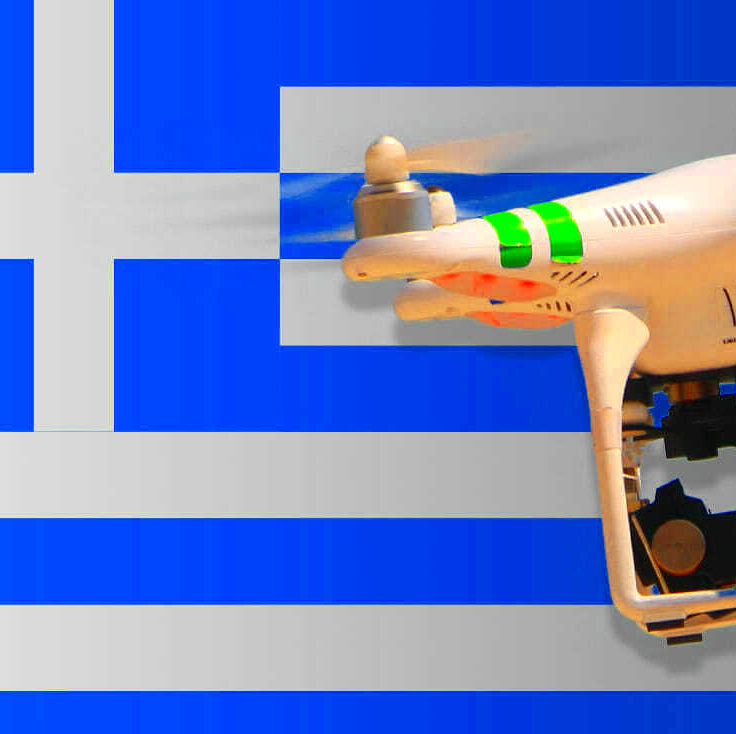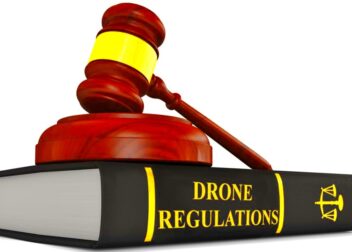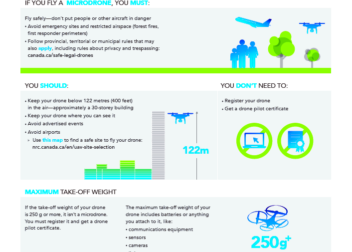Drone Laws in Greece Key Points to Remember
Flying drones in Greece can be quite a challenge due to the complex regulations in place. If you intend to fly a drone over the breathtaking views of Santorini or the ancient sites of Athens it’s essential to be aware of the local laws. While Greece has welcomed the use of drones it has established rules to prioritize safety and privacy. By equipping yourself with information and planning ahead you can navigate these regulations seamlessly and make the most of your aerial escapades without any disruptions.
Understanding the Regulatory Framework
The rules governing drones in Greece are influenced by EU regulations and local laws. The European Union Aviation Safety Agency (EASA) establishes a framework of guidelines that all member countries, including Greece, are required to adhere to. Here’s a brief summary.
- EASA Regulations: These rules cover various aspects of drone operation, from pilot qualifications to equipment standards.
- Greek National Regulations: Greece has specific rules that complement EASA guidelines, focusing on local airspace management and safety measures.
The Greek Civil Aviation Authority (YPA) plays a role in managing drone activities and making sure they adhere to national and European Union regulations. Their rules aim to strike a balance between fostering new ideas and prioritizing safety showcasing Greeces dedication to using drones in a secure and responsible manner.
Key Requirements for Drone Operation
Flying a drone in Greece goes beyond simply owning the newest device; it requires grasping and following a set of essential guidelines. From registering your drone to knowing the operational regulations here’s what you should be aware of.
- Drone Registration: Drones must be registered with the Greek Civil Aviation Authority (YPA). This process includes providing details about the drone and its operator.
- Pilot Licensing: Depending on the weight and type of the drone, pilots may need a specific license. For instance, commercial operators often require a more advanced license compared to hobbyists.
- Insurance: It’s mandatory to have liability insurance that covers potential damages caused by your drone. This is crucial for both safety and legal protection.
- Flight Restrictions: Be aware of no-fly zones, especially around airports, military areas, and sensitive sites. Greece has designated many such areas to ensure safety and privacy.
- Altitude Limits: Drones generally must stay below 120 meters (400 feet) to avoid conflicts with manned aircraft.
Based on what I’ve seen grasping these guidelines not only helps you stay compliant but also enriches your journey. Taking the time to get acquainted with the regulations before you soar through the air is always a good idea.
Drone Registration and Licensing
In Greece registering and licensing your drone is similar to obtaining a license for your vehicle. Its necessary to comply with the law before flying your drone. Being a passionate drone lover I have gone through this procedure and I can personally attest to the importance of getting it done correctly.
Here’s what you need to know:
- Registration Process: All drones weighing over 250 grams must be registered with the Greek Civil Aviation Authority (YPA). You’ll need to provide details such as the drone’s make and model, your contact information, and proof of insurance.
- Online Registration: The process is often done online through the YPA’s official portal. It’s straightforward but make sure to double-check all details to avoid any hiccups.
- Pilot Certification: Depending on your drone’s weight and intended use, you might need to obtain a specific certification. For example, if you’re flying commercially, a certified drone pilot license is required.
- Training: Many operators find that enrolling in a training course helps with both understanding the regulations and improving flying skills. It’s an investment in both your safety and compliance.
Based on what I’ve seen keeping track of regulatory changes can help you avoid unnecessary issues. The paperwork might appear overwhelming at first but it’s a worthwhile investment for a smooth flying journey.
Rules for Drone Flights in Different Areas
Flying your drone in Greece requires more than just a valid registration. It’s important to be aware of your flying location to avoid any breaches of local regulations. Having flown in different areas I’ve witnessed firsthand the significance of these rules for ensuring safe operations.
Here are some key points to consider:
- Airports and Airfields: Drones are prohibited within a certain radius around airports and airfields. This is to prevent any potential interference with manned aircraft. Always check the specific restrictions for the area you’re in.
- Military Zones: Many areas in Greece are designated as military zones where drone flights are strictly regulated or prohibited. Ensure you check these zones before planning a flight.
- Cultural and Historical Sites: Flying drones over ancient ruins or cultural heritage sites may require special permissions. These rules help protect Greece’s rich history from potential damage.
- Urban Areas: In cities, flying drones often comes with stricter regulations to avoid privacy issues and ensure public safety. Keep a safe distance from people and buildings.
During my journeys I’ve come across differences in local rules so it’s important to double check the guidelines for the place you’re visiting. Staying ahead of these regulations not ensures that you follow the law but also shows consideration for customs and safety matters.
Safety and Privacy Considerations
When it comes to flying drones in Greece prioritizing safety and privacy is crucial. Looking back on my experiences I’ve realized that being mindful of these factors can turn an otherwise uneventful flight into a regrettable incident.
Here’s what to keep in mind:
- Safe Flying Practices: Always maintain a line of sight with your drone and avoid flying in adverse weather conditions. Using safety features like automatic return-to-home can be a lifesaver.
- Privacy Concerns: Greece has strict privacy laws, and flying drones over private property without permission can lead to legal trouble. Always ask for consent if you’re filming or photographing someone’s property.
- Wildlife Protection: Avoid disturbing wildlife with your drone. Many areas have regulations to protect local fauna, and respecting these rules helps preserve natural habitats.
- Emergency Procedures: Be prepared for emergencies by having a plan for lost communication or drone malfunctions. Knowing how to handle these situations can prevent accidents and ensure a safe flying experience.
Based on what Ive seen making sure to keep these factors in mind not only keeps you on the side of the law but also guarantees that everyone, including yourself has a smooth and enjoyable flight.
Penalties for Non-Compliance
Disregarding drone rules in Greece can result in repercussions than just a monetary penalty; it may affect your future in the skies and in certain instances your liberty. Based on my experiences and the tales I’ve come across from other drone aficionados the fallout from not adhering to regulations can be quite significant. It’s not merely about steering clear of a reprimand; it’s about honoring the guidelines to guarantee a flying experience for all.
Here’s a breakdown of potential penalties:
- Fines: Depending on the violation, fines can range from a few hundred to several thousand euros. For example, flying in restricted areas or without proper registration can attract hefty fines.
- Drone Seizure: Authorities have the power to confiscate your drone if you’re caught operating it unlawfully. This can be a significant setback, especially if you rely on your drone for professional work.
- Criminal Charges: In severe cases, especially those involving repeated offenses or endangering public safety, criminal charges can be filed. These can result in more serious consequences, including potential imprisonment.
- Legal Proceedings: Non-compliance may lead to lengthy legal battles. This can be both time-consuming and expensive, often leading to more stress than the initial flight might have caused.
Based on what I’ve seen it’s wise to be cautious. Staying informed about the regulations and following them not only protects you from repercussions but also upholds the respect and trust of the community.
How to Stay Updated on Drone Laws
Drone regulations are always changing so it’s important to stay informed to steer clear of any legal issues. Based on my personal experiences and conversations with fellow drone enthusiasts I’ve come to realize that staying on top of the rules requires an approach. It’s not merely about adhering to guidelines; it’s also about being aware of any updates that could impact your flying endeavors.
Here are some ways to stay updated on things:
- Official Websites: Regularly check the Greek Civil Aviation Authority (YPA) website and other official government portals for updates on drone regulations.
- Drone Communities: Join local drone flying groups or online forums. These communities are often quick to share news about regulatory changes and practical advice.
- Newsletters: Subscribe to newsletters from aviation authorities or drone organizations. They often provide updates and insights directly to your inbox.
- Local Authorities: Contact local authorities or aviation offices if you’re unsure about specific regulations in different areas. They can provide the most accurate and up-to-date information.
- Professional Training: Consider enrolling in a professional training course. Many courses offer updates on current regulations as part of their curriculum.
Keeping yourself updated helps you fly within the bounds of the law and boosts your confidence in handling the skies with care.
Frequently Asked Questions
When it comes to rules for drones in Greece there are often inquiries, especially from newcomers or those who are not well versed in the regulations. Drawing from my conversations and personal experiences here are a few frequently asked questions along with their responses to provide you with a better understanding.
- Do I need a license to fly a drone in Greece? Yes, depending on the weight and type of your drone, you may need a license. For commercial use, a specific certification is required.
- Are there specific no-fly zones in Greece? Yes, there are designated no-fly zones around airports, military areas, and some cultural sites. Always check the local regulations before flying.
- How do I register my drone? Drones weighing over 250 grams must be registered with the Greek Civil Aviation Authority (YPA). The registration process is typically done online.
- What should I do if I accidentally fly into a restricted area? If you accidentally enter a restricted area, land your drone immediately and report the incident to local authorities. Being honest and proactive can help mitigate any potential issues.
- How often do drone regulations change? Drone regulations can change periodically. It’s important to stay updated through official sources and local drone communities to keep abreast of any changes.
Being equipped with these responses can enhance your experience with drones ensuring that you are ready to tackle any situation that comes your way.
Conclusion
Flying a drone in Greece is an exciting way to capture the beauty of the countrys landscapes and historical landmarks. However it’s crucial to navigate the rules carefully for a smooth experience. This involves understanding the regulations meeting registration requirements following specific rules for different areas and considering safety and privacy aspects. Every facet of drone operation in Greece comes with its own set of responsibilities. From my experiences I’ve discovered that staying well informed and compliant not only keeps you on side but also enhances your enjoyment of flying. Embrace the thrill of the adventure, respect the guidelines and you’ll find that your drone journeys in Greece can be both unforgettable and hassle free.


